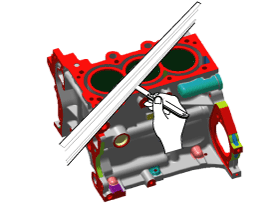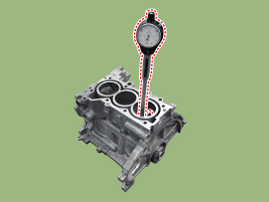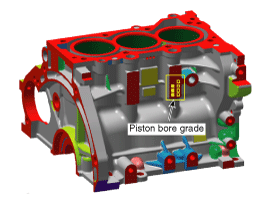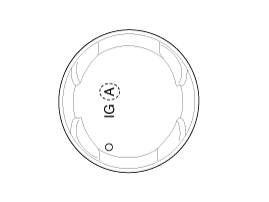Inspect the top surface of the cylinder block for flatness.
Using a precision straight edge and feeler gauge, measure the surface contacting the cylinder head gasket for warpage.
Flatness of cylinder block gasket surface
Standard : Less than 0.05 mm (0.002 in),
Less than 0.02 mm (0.0008 in) / 100 x 100 (3.937 x 3.937in)




